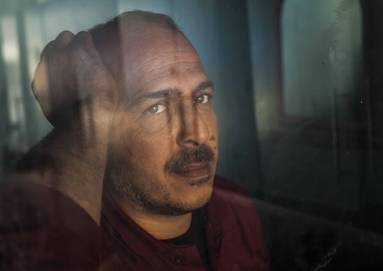The COPD-Anxiety Link
 The COVID-19 pandemic has made for stressful times worldwide. This is especially true for sufferers of chronic obstructive pulmonary disease (COPD), who face a greater risk of becoming severely ill if they get infected with the virus. Studies have also suggested a link between COPD and anxiety.
The COVID-19 pandemic has made for stressful times worldwide. This is especially true for sufferers of chronic obstructive pulmonary disease (COPD), who face a greater risk of becoming severely ill if they get infected with the virus. Studies have also suggested a link between COPD and anxiety.
While it’s unknown exactly how it happens, it could be that symptoms like cough, shortness of breath and chest tightness can kickstart a cycle of anxiety. Or people with COPD my feel anxious as symptoms begin to arise, speeding their heart rate.
Whatever the reason, there are seven things you can do to help manage your anxiety if you are a COPD sufferer:
- Know your triggers. For example, if shortness of breath from a COPD flare-up makes you feel anxious, you can identify that as a trigger and take care of it before an anxiety attack occurs.
- Plan accordingly. Staying active is important for COPD sufferers, but it is equally important that you’re as prepared as possible when doing so. Always have enough oxygen present. If you’re walking, make sure there are places where you can sit and take a break if necessary.
- Interpret your symptoms. What you tell yourself about your COPD symptoms is very important. If you’re feeling short of breath, avoid telling yourself it’s a worst-case scenario like you really cannot breathe. Doing so makes your anxiety and breathing worse. Instead, stay positive by reminding yourself that you just need some rest after getting some exercise, and you’ll be okay shortly.
- Used pursed lip breathing. While there are many effective breathing techniques, pursed lip breathing—slowly in through your nose and out through your mouth—helps COPD patients slow breathing and prevent hyperventilating. Once you rest and use pursed lip breathing, the best thing to do is focus on anything but your breathing.
- Distract yourself. Play a game on your phone, watch TV, count to 100, visualize yourself someplace peaceful—do anything to try and take the focus off your nervousness and allow your breathing to calm down.
- Be mindful. Mindfulness means being aware of your thoughts, emotions and surroundings. Being mindful allows you to reset your thoughts and take the focus off your stress. Next time you start to experience worrisome thoughts, focus on a simple task such like planning meals for the week or creating a shopping list. Doing so may help you relax and get your breathing under control.
- Attend a virtual support group. The COVID-19 pandemic has put a temporary end to large gatherings, but you can still find online support groups to help cope with COPD. Talking with someone who understands what you are going through can help you get a better handle on your anxiety.
The full story can be found here.

